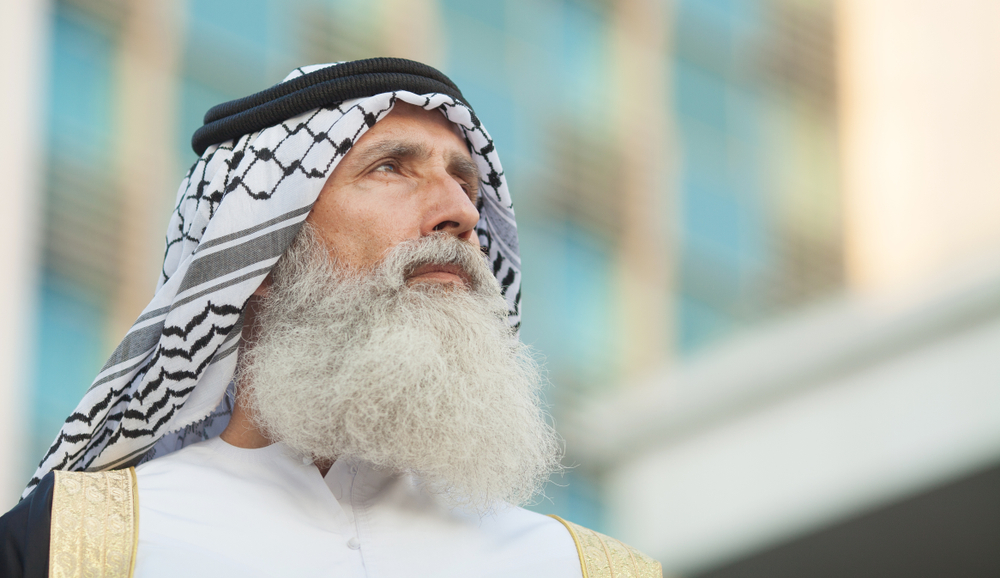What is Considered a Full-Length Beard in the Shafi‘i School?
Shafi'i Fiqh
Answered by Shaykh Irshaad Sedick
Question
The minimum requirement for a beard in the Shafi school is that it grows on the chin. If one were to extend his chin (goatee) to a length of fist length or longer while keeping the rest of the beard (sides and neck) at a shorter length (stubble), would this be considered following the sunnah of lengthening the beard? Since most Shafi scholars define the beard as the hair that grows on the chin, does the sunnah of lengthening the beard involve extending both the sides and the chin, rather than just lengthening the chin alone?
Answer
In the Name of Allah, the Most Merciful and Compassionate. May Allah alleviate our difficulties and guide us to what pleases Him. Amin.
The pure Sunnah of the Prophet (peace and blessings be upon him) is to maintain a full-length beard, as established in many prophetic traditions. Though some Shafi‘i’s opine that growing the hair on the chin is sufficient to fulfil the Sunna, and Allah knows best.
One such hadith is narrated by Ibn ‘Umar (may Allah be pleased with him), in which the Prophet (peace & blessings be upon him) said, ‘Trim the moustache, and leave the beard to grow.’ [Muslim]. The beard is a distinctive symbol of the religion, and Allah emphasises its significance, stating, ‘Whosoever exalts the symbols of God, this is indeed from the piety of hearts.’ [Hajj: 32]
What is the Beard Minimum?
In the al-Shafi’i school, the stance is defined by considering the beard (Ar. al-lihya) as the ‘hair that grows on the chin’ [Fath al-Mubin 1.66]. Trimming or plucking the beard is unconditionally disliked (makruh) [al-Ramli, Nihaya 8.149].
Shafi’i law books extensively define other facial hair, distinguishing it from the beard (lihya). Al-Ramli further mentions that it is also disliked to shorten the idha’rayn [Nihaya 8.149], referring to the hair below the temples and above the jawbones or the sides of the beard [Qamus al-Muhit, 436].
It’s worth noting that some Shafi’i scholars believe that removing hair from the chin is only disliked, highlighting the diversity of positions within the School providing flexibility. Allah knows best.
Lastly, it should be emphasised that altering facial hair to deviate from the pure Sunna of the Prophet (peace and blessings be upon him) or to imitate non-believers is deemed sinful behaviour.
May Allah protect us all and enable us to emulate the best of creation outwardly and inwardly, amin.
Please visit this related answer.
I pray this is of benefit and that Allah guides us all.
[Shaykh] Irshaad Sedick
Checked and Approved by Shaykh Faraz Rabbani
Shaykh Irshaad Sedick was raised in South Africa in a traditional Muslim family. He graduated from Dar al-Ulum al-Arabiyyah al-Islamiyyah in Strand, Western Cape, under the guidance of the late world-renowned scholar Shaykh Taha Karaan.
Shaykh Irshaad received Ijaza from many luminaries of the Islamic world, including Shaykh Taha Karaan, Mawlana Yusuf Karaan, and Mawlana Abdul Hafeez Makki, among others.
He is the author of the text “The Musnad of Ahmad ibn Hanbal: A Hujjah or not?” He has served as the Director of the Discover Islam Centre and Al Jeem Foundation. For the last five years till present, he has served as the Khatib of Masjid Ar-Rashideen, Mowbray, Cape Town.
Shaykh Irshaad has thirteen years of teaching experience at some of the leading Islamic institutes in Cape Town). He is currently building an Islamic online learning and media platform called ‘Isnad Academy’ and has completed his Master’s degree in the study of Islam at the University of Johannesburg. He has a keen interest in healthy living and fitness.
